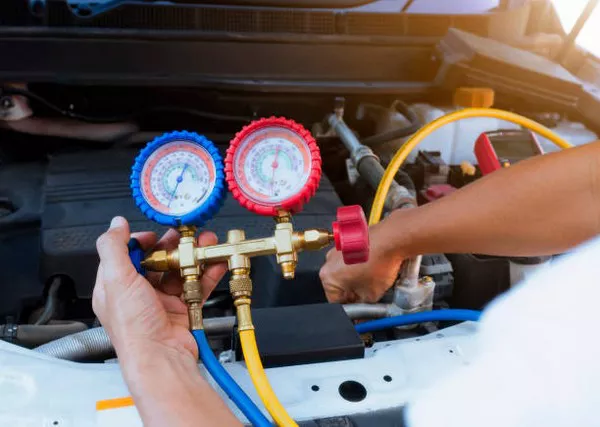In the world of refrigeration and air conditioning systems, the terms “compressor” and “condenser” are frequently used but are often misunderstood or confused with one another. Both components play pivotal roles in the heat exchange process, which is fundamental to cooling systems. In this comprehensive article, we will delve into the intricate differences between compressors and condensers, shedding light on their functions, designs, and significance in the realm of cooling and refrigeration.
The Compressor: Heart of the Cooling System
The compressor serves as the heart of refrigeration and air conditioning systems, playing a crucial role in the cycle of heat transfer. Its primary function is to compress low-pressure, low-temperature refrigerant gas, which ultimately transforms into high-pressure, high-temperature gas. This process is essential to facilitate the circulation of refrigerant throughout the cooling system.
Compressor Types
There are two main types of compressors widely used in cooling systems:
a) Reciprocating Compressors: These compressors use a piston and cylinder arrangement to draw in and compress refrigerant gas. They are commonly found in smaller-scale residential and commercial air conditioning units.
b) Rotary Compressors: Rotary compressors, on the other hand, operate using a rotating mechanism. They are more compact and energy-efficient, making them suitable for a wide range of applications, including window air conditioners and refrigeration appliances.
Compressor Functionality
The compressor’s primary function can be summarized in the following steps:
Low-Pressure Gas Inlet: The refrigerant gas enters the compressor at a low pressure and temperature.
Compression: The compressor’s action compresses the gas, raising its pressure and temperature significantly.
High-Pressure Gas Outlet: The now high-pressure, high-temperature gas exits the compressor and is directed to the condenser for further processing.
The Condenser: Heat Dissipation Hub
While the compressor works diligently to elevate the refrigerant’s pressure and temperature, the condenser is responsible for dissipating the heat accumulated within the system. The condenser plays a pivotal role in this cooling cycle, ensuring that the refrigerant releases its heat energy to the surrounding environment.
Condenser Types
Condensers also come in various types, with the two most common ones being:
a) Air-Cooled Condensers: These condensers employ ambient air to cool and condense the high-pressure, high-temperature refrigerant gas. They are prevalent in residential air conditioning units and some small-scale industrial applications.
b) Water-Cooled Condensers: Water-cooled condensers utilize water as the cooling medium. They are often used in larger industrial and commercial refrigeration systems due to their enhanced cooling capacity and efficiency.
Condenser Functionality
The condenser’s primary function involves the following steps:
Reception of Hot Gas: High-pressure, high-temperature refrigerant gas from the compressor enters the condenser.
Heat Dissipation: As the refrigerant flows through the condenser coils or tubes, it releases heat to the surrounding environment (either air or water). This causes the refrigerant to undergo a phase change from a gas to a high-pressure liquid.
Outlet of Liquid Refrigerant: The cooled and condensed liquid refrigerant exits the condenser and is sent to the evaporator, where it undergoes another phase change, becoming a low-pressure, low-temperature gas once again.
Key Differences between Compressor and Condenser
1. Functionality
The fundamental difference between a compressor and a condenser is their role in the refrigeration cycle. The compressor is responsible for raising the pressure and temperature of the refrigerant gas, while the condenser’s primary function is to dissipate the heat from the refrigerant, causing it to change from a gas to a liquid state.
2. Temperature and Pressure
Compressors operate by increasing the temperature and pressure of the refrigerant, making it suitable for further heat exchange. In contrast, condensers work to lower the temperature and pressure of the refrigerant, allowing it to release the heat it absorbed from the indoor environment.
3. Location in the System
Compressors are typically located in the indoor unit of an air conditioning system or within the appliance’s housing in refrigeration units. Condensers, on the other hand, are often found in the outdoor unit of air conditioning systems or in a separate unit for refrigeration appliances.
4. Cooling Medium
Compressors do not directly interact with a cooling medium but instead work internally to compress the refrigerant gas. In contrast, condensers rely on either air or water as a cooling medium to facilitate the heat dissipation process.
5. Types and Varieties
Both compressors and condensers come in various types and designs to suit different applications and cooling system sizes. Compressors can be reciprocating or rotary, while condensers can be air-cooled or water-cooled.
Conclusion
In summary, while compressors and condensers are integral components of refrigeration and air conditioning systems, they serve distinct roles in the heat exchange process. The compressor is the workhorse responsible for elevating the refrigerant’s temperature and pressure, while the condenser is dedicated to dissipating the accumulated heat, enabling the refrigerant to transition to a liquid state. Understanding these differences is crucial for designing, maintaining, and troubleshooting cooling systems, ensuring their optimal performance and efficiency. Whether you’re a homeowner, HVAC technician, or engineer working in the field, a grasp of compressor and condenser functionality is essential for mastering the art of cooling and refrigeration.

